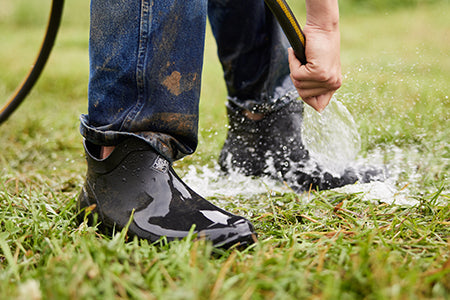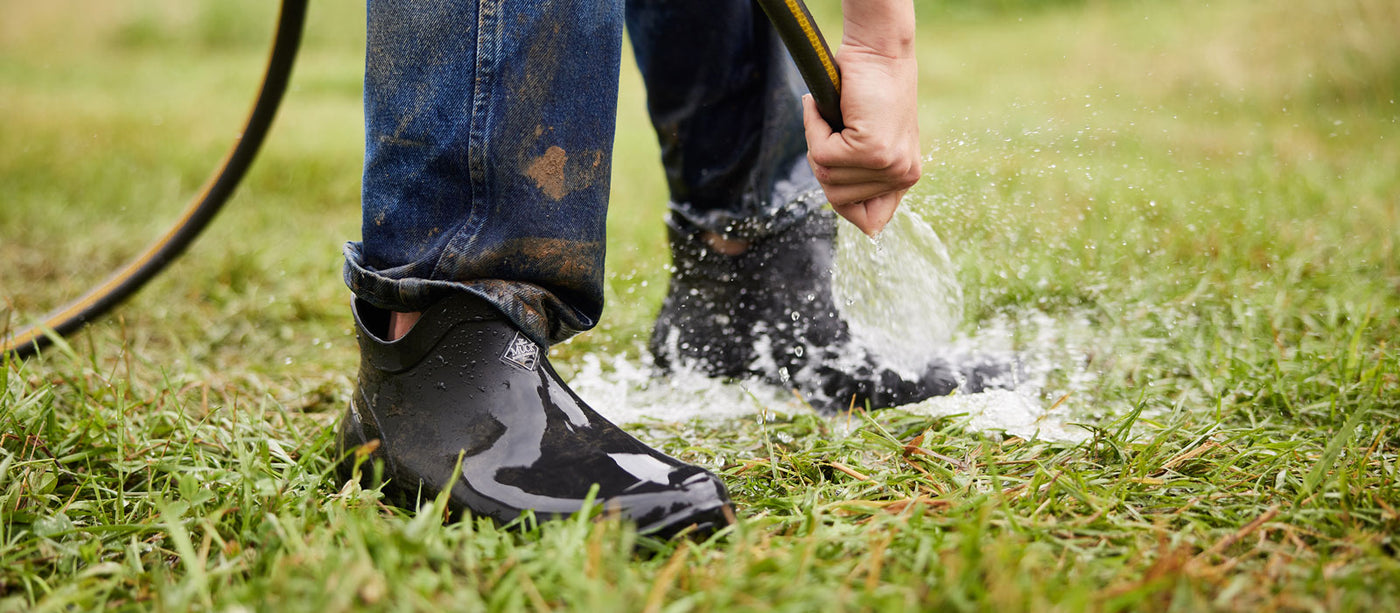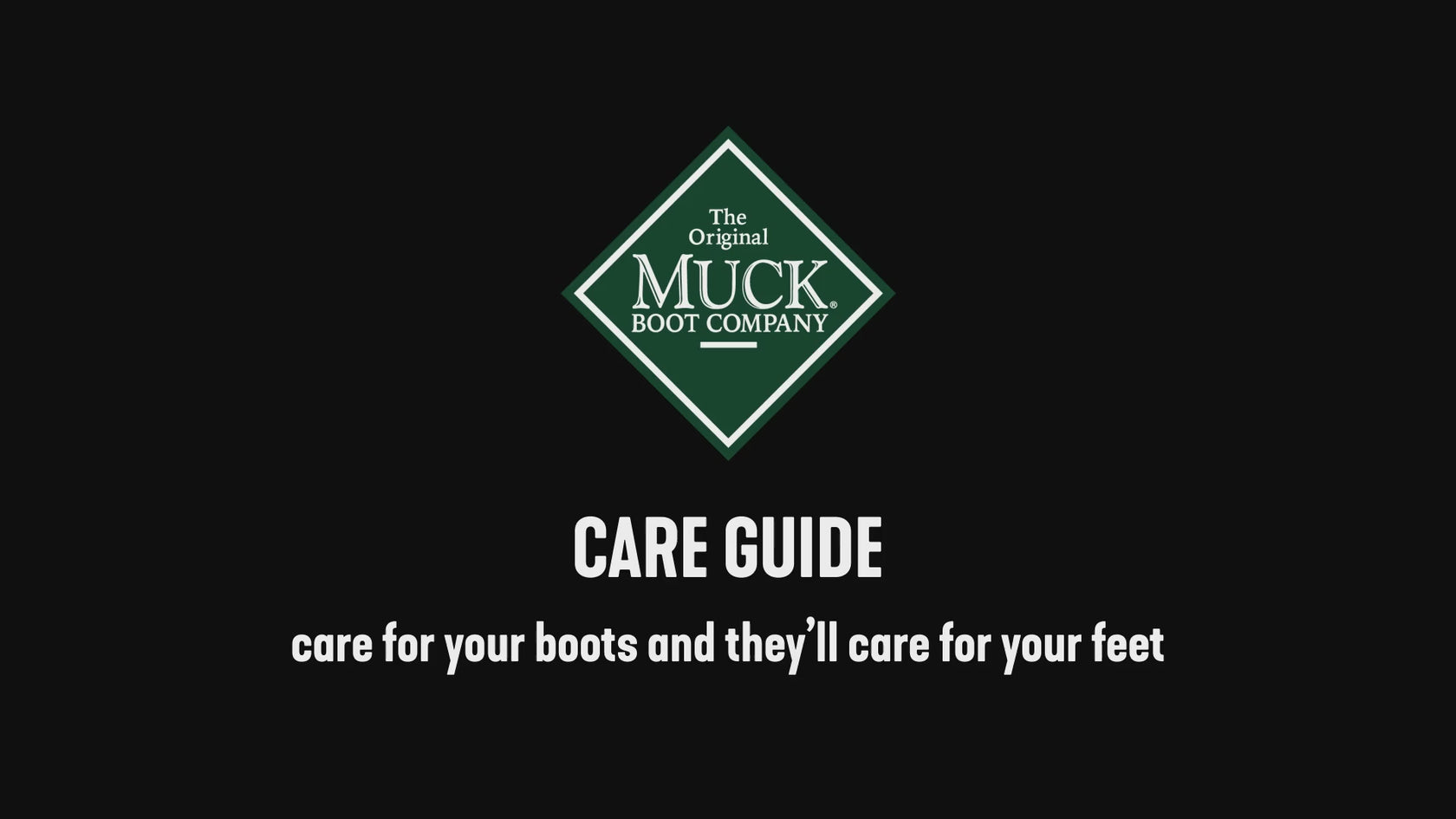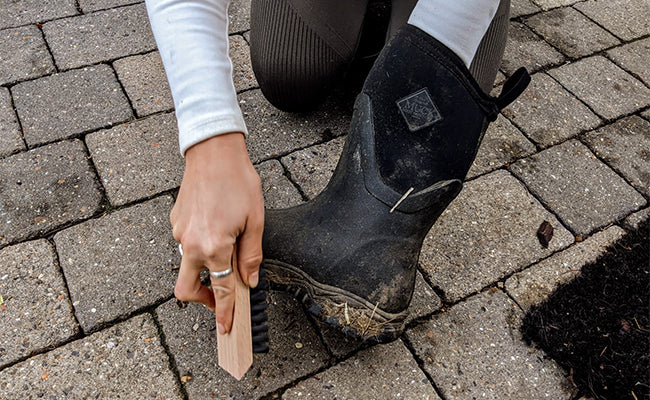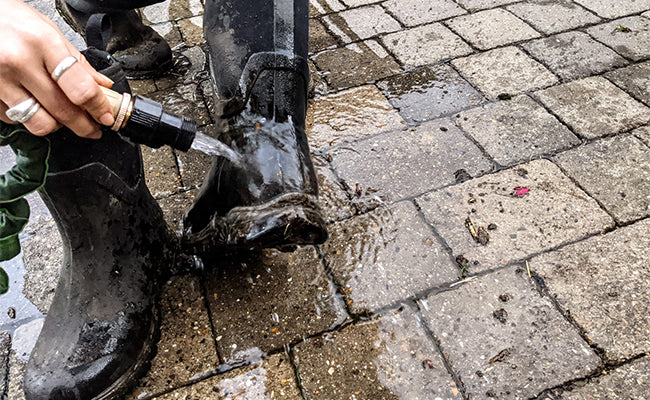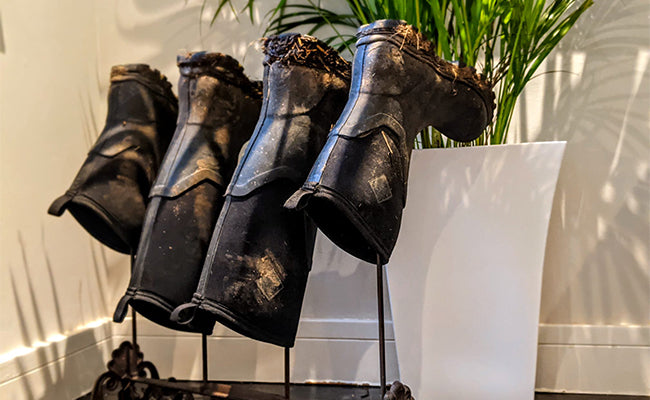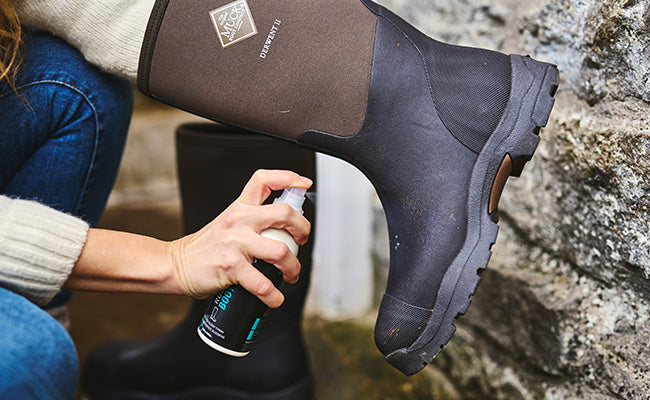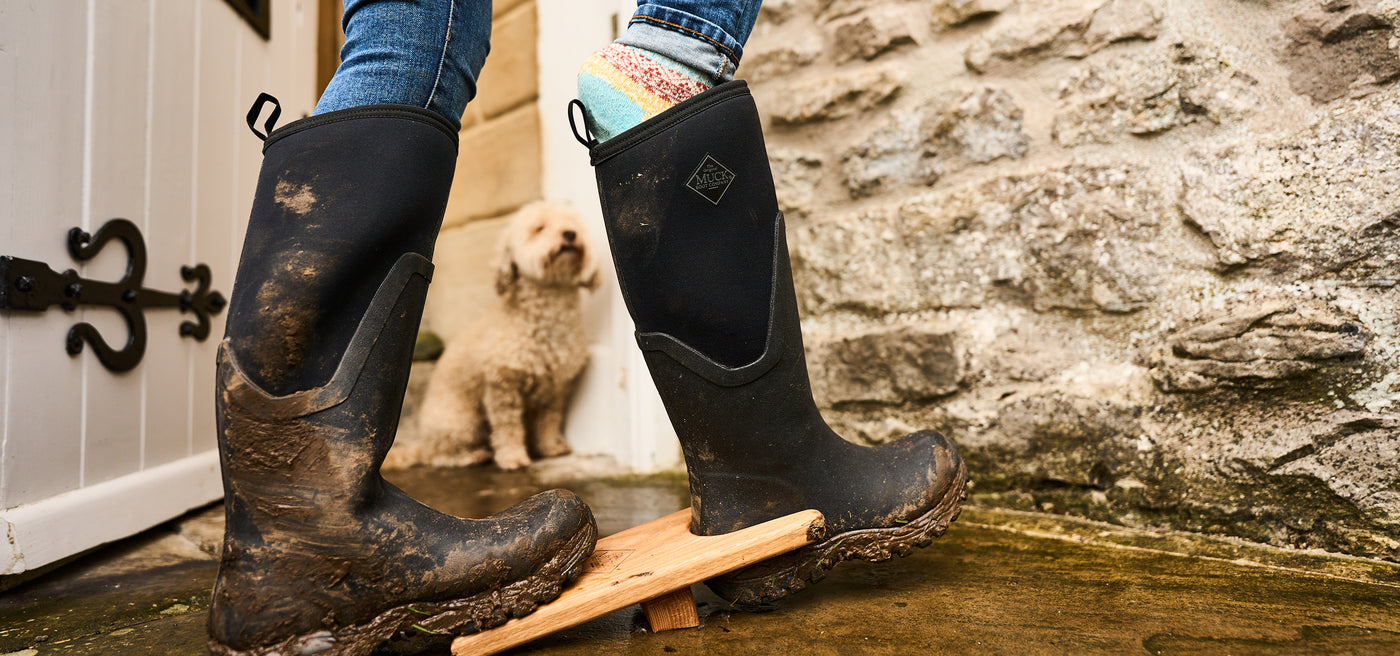YOUR NEW MUCK BOOTS ARE CONSTRUCTED WITH HIGH-GRADE MATERIALS AND NATURAL RUBBER.
FOLLOW OUR CARE GUIDE TO HELP PROLONG THE LIFE OF YOUR WELLINGTON BOOTS
WATCH HERE
HOW TO CLEAN & CARE FOR YOUR WELLINGTON BOOTS
Following these steps when cleaning your boots will keep them fresh and help preserve the longevity of your wellies for all your upcoming mucky adventure!
BEST PRACTICE TO PROLONG THE LIFE OF YOUR MUCK® BOOTS
PUTTING ON WELLINGTON BOOTS
PUTTING ON WELLINGTON BOOTS
Take care pulling your boots on to ensure the boots shaft is correctly extended. Our neoprene upper can be a snug fit and not pulling the boots to their full height, or over stuffing with trouser leg can cause excessive creasing where the ankle articulates.
TAKING OFF WELLINGTON BOOTS
TAKING OFF WELLINGTON BOOTS
Using a suitable boot jack is the preferred method of removal. There are many examples of boot jacks on the market including our own. Avoid using the opposite foot as a lever on the heel of the boot or a convenient step, stair or rock as this can damage the boot and can cause excessive pressure on the boot heel and sole leading to damage.
CONDITIONING RUBBER WELLIES
CONDITIONING RUBBER WELLIES
As a natural material, it is important your rubber boots are conditioned regularly to ensure they last for years to come. Feeding your boot uppers will help keep them supple, prolonging their life and minimalizing the risk of cracks and crazing. There are many examples of rubber boot care products on the market including our own.
STORING WELLIES
STORING WELLIES
Avoid storing your boots in direct sunlight, near to any artificial heat or in sub-zero temperatures, as this can cause the rubber to become brittle, deteriorate and crack. Preferably store your boots upright to avoid creasing or folding – some crumpled newspaper will help.
LEATHER & FABRIC UPPERS
LEATHER & FABRIC UPPERS
For leather uppers use a suitable leather care product. Once dry, any woven/fabric upper panels can be gently brushed with a soft brush to remove any remaining mud.
USES
USES
Our boots are great, and a little TLC should see them lasting and performing to the highest standards in the toughest conditions. However, they are conceived as a work/walk inspired product. Particularly our tall boots are not designed for driving or horse riding unless specifically stated. Inappropriate use can shorten their effective lifespan.

